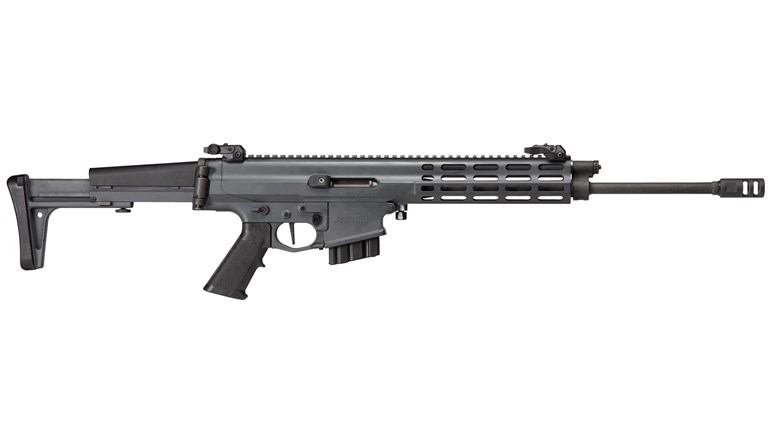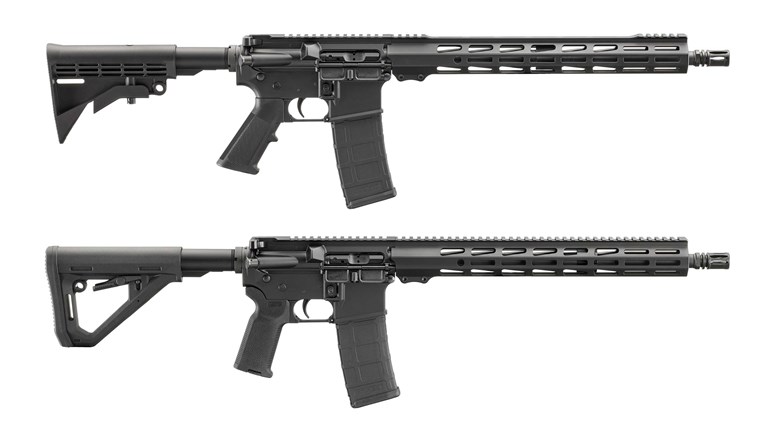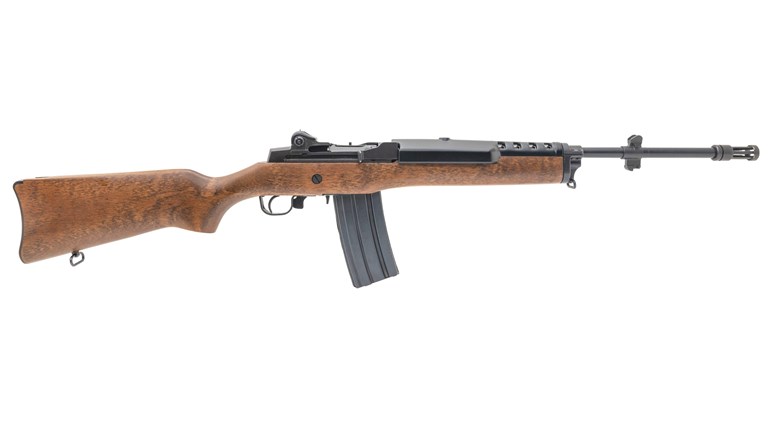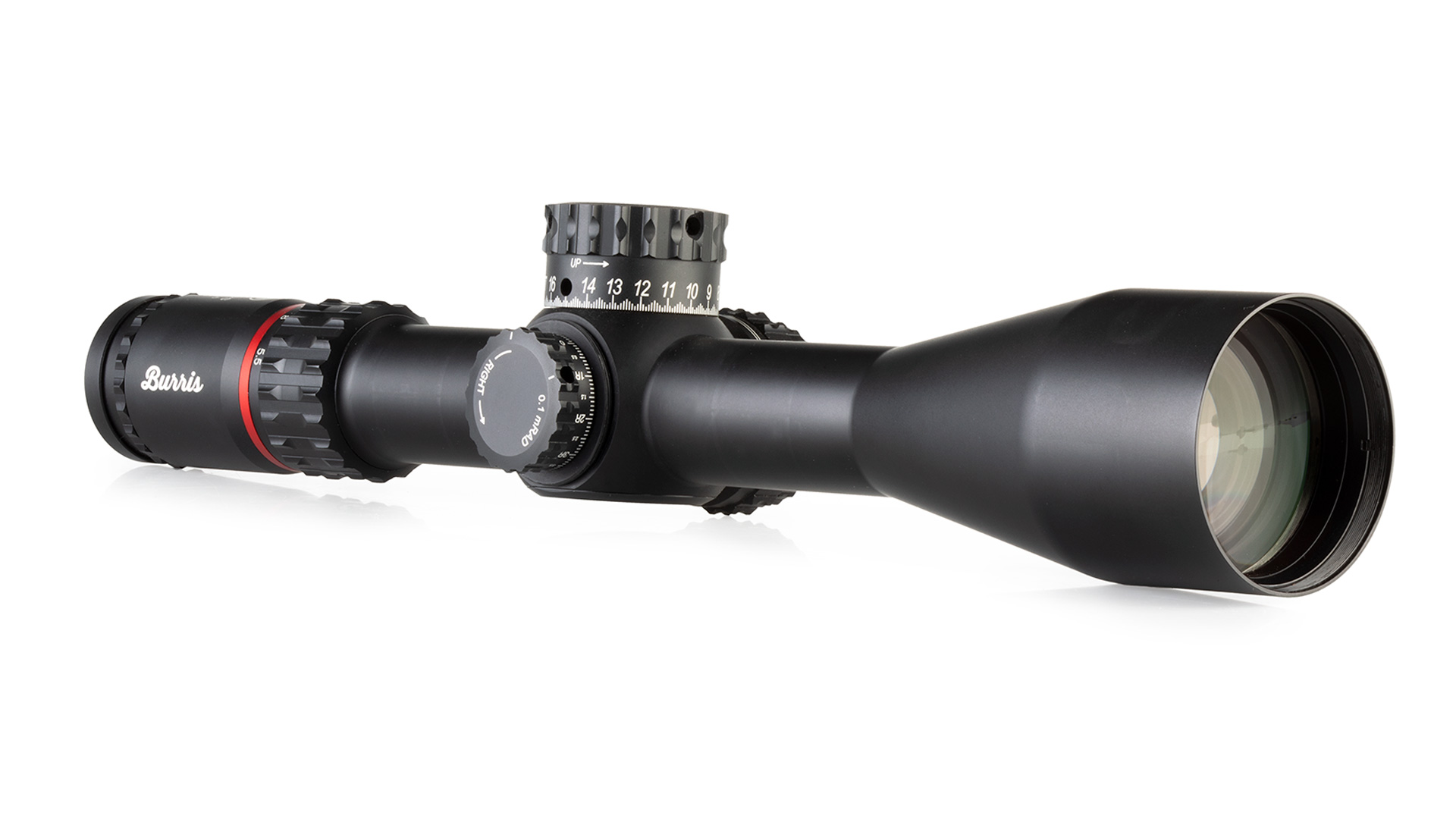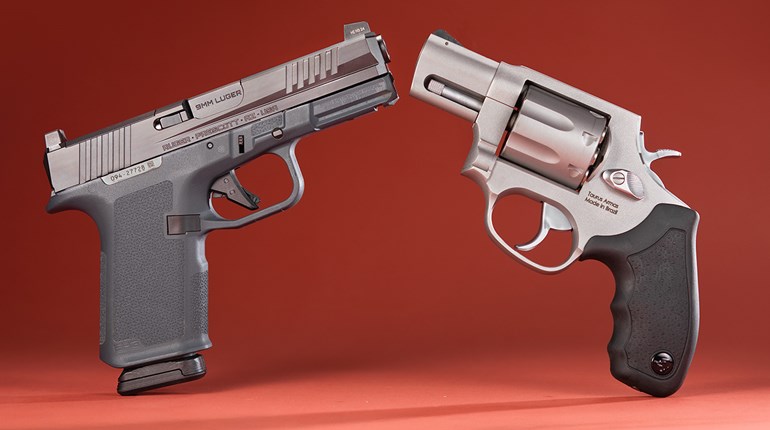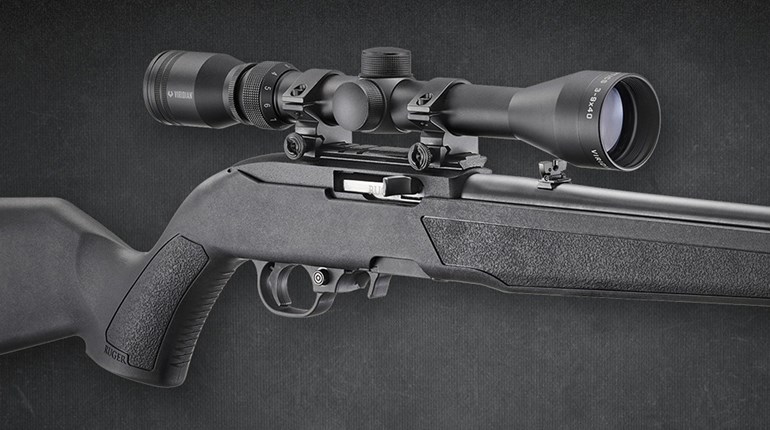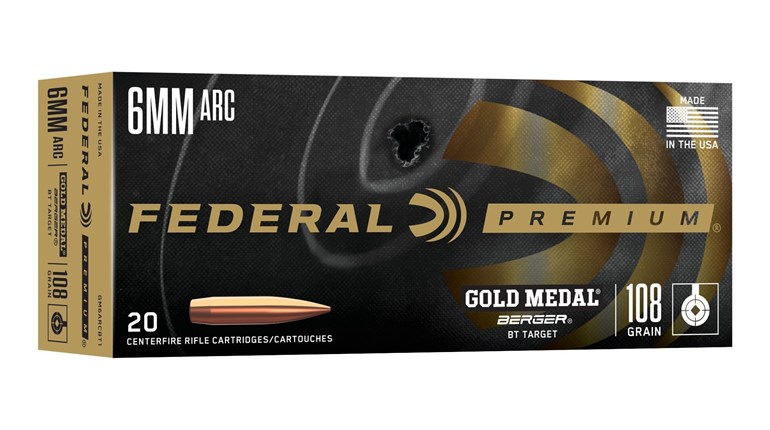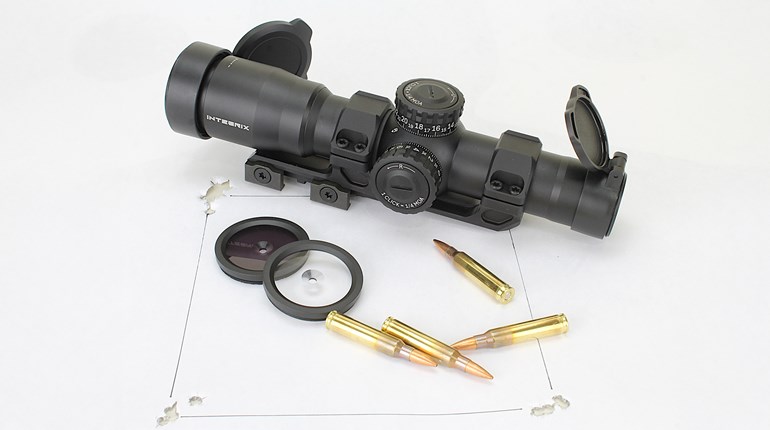
There are many trade-offs when developing a Personal Defense Weapon (PDW). It needs to be light and compact, while chambered in a reasonable defensive cartridge. Firepower should be plentiful and easily replenished, and accuracy shouldn’t suffer as a result of shorter barrels or reduced sight radius. PDWs are often chambered in 9 mm or 5.56 NATO, although more exotic rounds like the 5.7x28 mm and 4.6x30 mm are found in some of the original models of the species.

Kel-Tec took a decidedly different approach with the company’s CMR-30. While the collapsible stock and 16.1-inch barrel keep the PDW’s length to a minimum and the polymer frame shaves ounces, the .22 Mag. chambering presents a conundrum. Out of a carbine-length barrel, the .22 Mag. produces ballistics on par with the 5.7x28 mm, a proven PDW round. However, the big beef lies in the unpredictability of rimfire ammunition.
Of course, the design parameters of the CMR-30 were influenced by Kel-Tec’s PMR-30 pistol. Thirty rounds of .22 Mag. in a magazine that fits entirely in the pistol grip give the PMR-30 unprecedented levels of firepower, and continuing that design in the carbine version made sense. The magazines are interchangeable, so those who favor a pistol and longarm that share magazines will be happy. The carbine also shares controls with the pistol—if you’re familiar with how to run one, you should have no trouble running the other.
Inconsistent rimfire ignition is still a subject for discussion. There’s a reason few consider the .22 LR to be a valid defensive round, and while the .22 Mag. offers increased velocity and attendant muzzle energy, at the end of the day it’s still a rimfire round with inferior reliability of detonation compared with centerfire cartridges. Obviously, there’s a trade-off regarding capacity: 30 rounds of .22 Mag. fit in a magazine that’s scarcely larger than a 17-round Glock 9 mm magazine.

While we could argue the merits and downsides to the .22 Mag. round all day, the real proof comes on the range. In more than 250 rounds sent downrange, zero failures resulted from improper detonation of the round (a small handful of failures to feed were encountered, but they smoothed out as the round count notched higher). When it comes to the vaunted “stopping power,” it’s worth noting that, in our May 2015 issue, Ammo Editor Richard Mann calculates the muzzle energy of the .22 Mag. to be 314 ft.-lbs.—and 364 ft.-lbs. for the 9 mm. That’s only a 14 percent reduction in power while allowing nearly double the capacity.
Whether or not to trust .22 Mag. for self-defense is a personal choice, but in any case, the CMR-30 performed well in testing. Right out of the box, a few failures to feed were experienced. However, with further shooting, those problems disappeared, most likely as the brand-new magazines broke in a bit. The CMR-30 handles quite well—its size and weight make the carbine easy to maneuver. Drills where it is necessary to present from low-ready or engage multiple targets can be performed with minimal effort. A sling eyelet is located at the rear of the receiver and facilitates mounting of a single-point sling.
For southpaws, the CMR-30 is moderately accommodating. The safety lever, sling loop and charging handle are duplicated on either side, while the stock and magazine-release buttons are centrally located. The ejection port can’t be swapped for left-handed shooters, though; it may result in cases being flung uncomfortably close to the shooter’s face. Given the small size of the .22 Mag. case, this may or may not be problematic.

Accessorizing the CMR-30 is made simple thanks to a full-length top Picatinny rail and 7-inch long accessory rail underneath the barrel. Adding a red-dot, holographic sight or magnified optic depends solely upon your budget, and the carbine comes with Magpul’s flip-up polymer sights. Should a light, laser, foregrip or other accessory be desired, the underbarrel, 18-slot accessory rail can accommodate a variety of options. The CMR-30 is adaptable and functions well in many configurations.
On the firing line, the advantages of the .22 Mag. chambering become apparent—even in this lightweight carbine, recoil is non-existent. Follow-up shots are fast and time to get back on target is minimal. Keeping the entire magazine inside the black on a reduced-size silhouette target at 25 yards proved ridiculously easy with the CMR-30. Put a quality red-dot sight on the top rail, dial it in at 25 yards and the CMR-30 will perform admirably.
I tested the CMR-30 out to 100 yards (official accuracy testing was performed at 50 yards, based on the short barrel length and pistol-caliber ammunition) and found it to deliver exceptional accuracy—more than one group came close to 1 MOA. At 50 yards, the results were certainly sufficient to stop any threat, and at closer distances, it becomes more a matter of shooter skill than the mechanical precision of the Kel-Tec. Even under rapid-fire conditions, the CMR-30 will deliver all rounds exactly where they need to go, and the light recoil of the .22 Mag. makes keeping it on target an easy chore.
Whether the CMR-30 is right for your needs is an intensely personal decision. The .22 Mag. chambering provides stopping power on par with some handgun rounds, especially out of a longer barrel, and can be useful at significant distances—it would make a handy little rifle for varmint control, certainly. It would also excel as a truck or trunk gun, a quick-to-deploy carbine kept under a seat or locked in the trunk for the worst-case scenario. MSRP is on par with an entry-level AR-15 (ditto for ammo costs), but the CMR-30 is both smaller and lighter (again, ditto on the ammunition). If your criteria focus on size, weight or accuracy, the CMR-30 is a surprisingly good fit.














